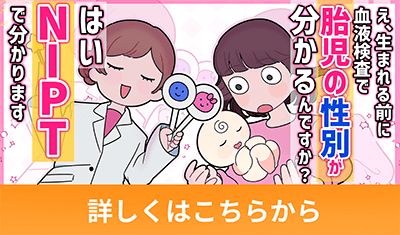- Introduction
- Why Do Pregnancy and Childbirth Cause Emotional Instability?
- What is Maternity Blues?
- What is Depression?
- Differences Between Maternity Blues and Depression
- Postpartum Depression and Paternity Blues in Fathers
- Conclusion
Introduction
During pregnancy and after childbirth, it is a time when feelings of depression can easily occur.
Women are twice as likely as men to develop depression, and pregnancy and the postpartum period are particularly vulnerable times for developing depression. In recent years, it is said that one in ten women who experience childbirth will develop “postpartum depression.”
Why Do Pregnancy and Childbirth Cause Emotional Instability?
Pregnant women experience continuous changes in hormone balance to sustain pregnancy and prepare for childbirth. Hormones play a significant role in the physical and mental changes during pregnancy.
The main hormones involved are progesterone and estrogen. These hormones are crucial for maintaining pregnancy but can also cause various minor issues.
Additionally, the physical changes associated with pregnancy, along with changes in the environment and lifestyle, can lead to mood instability.
What is Maternity Blues?
After childbirth, you may find yourself crying over small things, getting angry easily, or feeling unmotivated. This condition is collectively referred to as “maternity blues.”
Definition of Maternity Blues
Maternity blues refer to a psychological state of autonomic nervous system instability and mental unease that occurs from childbirth to one month postpartum. It is said that the frequency among Japanese women is about 25-50%.
Causes of Maternity Blues
The mother’s body undergoes a rapid decrease in female hormones due to childbirth and transitions to a state suitable for breastfeeding. This sudden drop in hormones, combined with the fatigue of childbirth, lifestyle changes, childcare fatigue, insomnia, pressure, anxiety, and loneliness, is said to be the cause of maternity blues.
Duration of Maternity Blues
Maternity blues typically improve naturally within 1-2 weeks. However, if feelings of depression persist for more than two weeks postpartum, postpartum depression may be suspected. Those who experience severe symptoms of maternity blues or have a history of mental illness before or during pregnancy are more likely to develop postpartum depression.
How to Overcome Maternity Blues
Understanding that these symptoms are not long-lasting and being aware of the physical changes occurring before and after childbirth, as well as informing your family, are key points in overcoming maternity blues.
Talking to other mothers, listening to experiences, and sharing your anxieties can also be helpful. If you are having a hard time, don’t hesitate to talk to someone—whether it’s your partner, family, friends, midwives, doctors, or local health centers—about how you’re feeling.

What is Depression?
Depression is often thought of as a “mental illness,” but recent research suggests it is a brain function disorder. The exact causes of pregnancy depression and postpartum depression are still unknown. It is believed that brain function disorders occur due to various reasons, such as stress, leading to negative perceptions and thoughts, and feelings of self-loathing.
Can You Get Pregnant with Pre-existing Depression?
It is medically proven that it is safe to become pregnant and have children even if you are taking antidepressants for depression. However, there are some precautions that need to be taken.
Depression During Pregnancy
Depression can develop during pregnancy, known as “pregnancy depression.” As mentioned earlier, depression is twice as likely to occur in women compared to men. In addition to this, the stress associated with pregnancy can trigger pregnancy depression. Pregnancy and the postpartum period are considered times when the risk of developing depression is higher.
Causes of Depression During Pregnancy
The exact causes of depression during pregnancy are not well understood. However, this period is often associated with high stress and insufficient support from those around the pregnant woman. Additionally, the significant hormonal changes that accompany pregnancy and childbirth can reduce the brain’s resistance to stress. As a result, the brain, unable to cope with the stress, may become dysfunctional, leading to a tendency to perceive things negatively.
Effects of Depression During Pregnancy on the Baby
Depression during pregnancy can lead to fetal growth retardation, increased complications during childbirth, decreased motivation for childcare, and issues such as child abuse, self-harm, or suicide. Therefore, early diagnosis and treatment are crucial.
Diagnosis of Depression During Pregnancy
It is important to stop burdening yourself with thoughts like “As a mother, I must do this” or “I must take care of the child myself.” Instead, ensure that your partner and family understand your condition. If you do not have family members you can rely on, seeking help from medical staff, local public health nurses, or other public institutions is also crucial.
Treatment of Depression During Pregnancy
It is medically proven that pregnancy and childbirth are not problematic even while taking antidepressants. However, some antidepressants have been reported to slightly increase the risk of congenital heart defects. Therefore, it is reassuring to plan pregnancy carefully or inform your healthcare provider of the possibility of pregnancy when undergoing antidepressant therapy, and avoid antidepressants that may affect pregnancy in advance.
Need for Support from Husband and Family
When pregnant with depression, support from your partner and family is essential. It is important to create an environment, with input from experts, that identifies “what does not need to be done” and “what kind of support is needed from those around you.”
Is Depression More Likely During the Second Pregnancy?
Depression during pregnancy is said to be more common in first-time mothers. However, the risk of depression still exists for mothers having their second or subsequent children. In such cases, the need to care for a newborn while also taking care of other children can lead to being overwhelmed, which may trigger depression.
What is Postpartum Depression?
Postpartum depression affects approximately one in ten women and is characterized by symptoms such as low mood, loss of enjoyment, feelings of guilt, and low self-esteem. It often develops within the first three months after childbirth.
Definition of Postpartum Depression
While maternity blues typically improve within 1-2 weeks, postpartum depression lasts for more than two weeks. It is difficult for postpartum depression to improve naturally, so some form of treatment is necessary.
Causes of Postpartum Depression
Similar to pregnancy depression, the exact causes of postpartum depression are not well understood. However, it may be related to the stress of unfamiliar childcare, lack of support from those around, and sleep deprivation. Additionally, the significant hormonal changes after childbirth are also considered to have an impact.
Symptoms of Postpartum Depression
- Strong sadness
- Frequent crying
- Intense mood swings
- Easily angered
- Strong sense of fatigue
- Oversleeping or inability to sleep
- Headaches or body aches
- Loss of interest in activities
- Anxiety attacks or panic attacks
- Loss of appetite or overeating
- Loss of interest in the child
- Unexplained feelings of helplessness and despair
- Guilt
- Strong worry about harming the child
- Suicidal thoughts
Treatment of Postpartum Depression
Depression requires a diagnosis by a psychiatrist. If you experience the symptoms mentioned above, it is important to see a psychiatrist as soon as possible. Treatment includes environmental adjustments to reduce stress and medication therapy. Collaboration with your partner, family, medical staff, and local health nurses is essential.
Duration of Postpartum Depression
While maternity blues usually improve naturally within 1-2 weeks, postpartum depression tends to last more than 2 weeks. It is commonly observed to develop within the first 3 months after childbirth, but there are cases where anxiety or depressive issues might have started during pregnancy, or the onset of depression may be unclear. Therefore, early treatment is crucial. For those with a longer history of the condition, it may take a significant amount of time for symptoms to improve.

Differences Between Maternity Blues and Depression
The major difference between maternity blues and depression is that maternity blues are temporary and naturally improve within 1-2 weeks, whereas pregnancy depression and postpartum depression persist for a longer period and require treatment.
Prevalence of Maternity Blues and Depression
The incidence of maternity blues is reported to be around 25-50%, while the rate of developing depression during pregnancy is about 10%. People who are more likely to develop depression during pregnancy often have stronger symptoms of maternity blues or a history of mental health issues. There are also reports suggesting that older age is associated with a higher incidence of depression during pregnancy and postpartum.
Prevention and Measures from Pregnancy
It is important to be aware that maternity blues, pregnancy depression, and postpartum depression can affect anyone. Sharing this knowledge with partners and family is crucial. Just being aware can help prevent unnecessary self-pressure and make it easier to accept support from external sources.
Early Pregnancy
In the early stages of pregnancy, you may feel significant stress and anxiety about whether your baby is healthy. If regular check-ups are not enough to ease your concerns, it is possible to undergo tests such as NIPT (Non-Invasive Prenatal Testing). NIPT (Non-Invasive Prenatal Testing) can be performed as soon as pregnancy is confirmed by an ultrasound examination, allowing you to quickly learn about your baby’s condition.
Mid Pregnancy
Before childbirth, it’s beneficial to discuss how to divide household responsibilities and whether the partner will take parental leave. Recently, there has been an increase in postpartum depression among men as well. It’s important to recognize that depression can affect partners as well, and it’s not just an issue for others.
Late Pregnancy
It’s a good idea to check and be aware of available resources and public services. Look into local consultation centers, babysitters, and any unique services offered by your municipality. Preparing in advance by knowing which services to use in case of an emergency can help alleviate stress.
Postpartum Depression and Paternity Blues in Fathers
After the birth of a baby, it has been reported that symptoms of depression are often observed in fathers between 3 to 6 months. Reasons include changes in lifestyle, reduced couple time, the wife focusing on the baby, and changes in family roles.
While attention is often focused on the mother during pregnancy and childbirth, it is important to recognize that fathers also experience stress and can suffer from postpartum depression and paternity blues.
Conclusion
What’s crucial in dealing with maternity blues, depression, and paternity blues is to signal that you need help. Depression, in particular, can become increasingly severe if left untreated and may affect the baby and partner, so it’s important to consult a specialist early and start treatment with counseling or medication to avoid future regret.
If you continue to struggle, don’t hesitate to seek support from those around you.
【References】
- Japan Association of Obstetricians and Gynecologists
- Ministry of Health, Labour and Welfare – e-Health Net
- MSD Manuals
Article Editorial Supervisor

Dr Hiroshi Oka
NIPT specialist clinic, MD
Graduated from Keio University, School of Medicine
 中文
中文






















